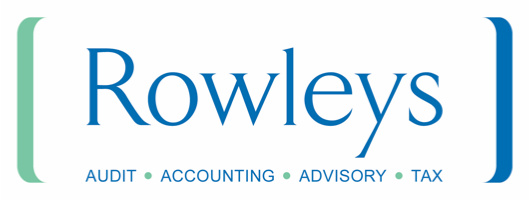News & Events
Changes to the National Insurance….so what salary should I take?
4th July 2022
Earlier in the year we had the annual Budget which announced that from 5 April 2022 there would be changes to National Insurance:
- The “Employment Allowance” increased, this allows eligible employers to reduce their annual National Insurance liability by up to £5,000.
- The rate of National Insurance (and dividend tax rate) increased by 1.25% (next year this will be known as the Health and Social Care Levy); so Employers’ Class 1 National Insurance is now 15.05% and Employees’ Class 1 National Insurance is now 13.25%.
In addition there were increases to the National Insurance thresholds, which included a further increase in these thresholds on 6th July 2022 (see below).
Recap: Key National Insurance thresholds for Employers
Lower earnings limit – This is the amount which allows an employee to qualify for certain state benefits as long as they earn more than this threshold, but generally there is no National Insurance to pay.
Secondary threshold – This is the amount where Employers starts to pay National insurance contributions (at 15.05%) if employees earn more than this threshold.
Primary threshold – This is the amount where Employees starts to pay National insurance contributions (at 13.25%) if they earn more than this threshold. This is the threshold that has changed on 6th July.
- The rate Employees pay on their National Insurance Contributions changes to 3.25% above the Upper Earnings Limit (see below).
From 6 July 2022
| State Benefits | Employers NICs | Employees NICs
|
||
| Lower earnings limit | Secondary threshold | Primary threshold
|
Upper Earnings Limit | |
| 0% below threshold.
15.05% above the threshold. |
0% below threshold.
13.25% above the threshold (up to the Upper Earnings Limited) |
3.25% above this amount | ||
| 6 April 2022 to 5 April 2023 | 6 April 2022 to 5 April 2023 | 6 April 2022 to 5 July 2022 | 6 July 2022 to 5 April 2023 | 6 April 2022 to 5 April 2023 |
| £123 per week £533 per month £6,396 per year |
£175 per week £758 per month £9,100 per year |
£190 per week £823 per month £9,880 per year |
£242 per week £1,048 per month £12,570 per year |
£967 per week
£4,189 per month £50,284 per year |
So…what salary should I take?
For most owner managed businesses whose Directors do not have another source of income it is common tax planning to pay a small salary and them supplement this with dividends; this is due to taking dividends is generally more tax efficient than large salaries.
It is generally advised for business owners to take at least income to the point a company would start paying Employers National Insurance: the Secondary threshold of £758 per month, which is £9,100 per year:
- The company gets a Corporation Tax deduction at 19% (increasing up to 25% from 5 April 2023)
- There is no Income Tax if the individual has their Personal Allowance (£12,570)
- The Employee is qualifying for state benefits and state pension
- There is no National Insurance due
For businesses that qualify for the Employers Allowance or employers have many people on their payroll and are used to paying monthly payments under PAYE, it is generally advised for the business owners have increased salaries to take at least income to the point a company would start paying Employees National Insurance: the Primary threshold of £1,048 per month, which is £12,570 per year:
- The company gets a Corporation Tax deduction at 19% (increasing up to 25% from 5 April 2023)
- There is no Income Tax if the individual has their Personal Allowance (£12,570)
- The Employee is qualifying for state benefits and state pension
- There is still no Employees National Insurance due
- For Employers National Insurance;
- If the company qualifies for the Employers Allowance and the National Insurance is no more than £5,000, there should be no NI due.
- If the company does not qualify for the Employers Allowance or the National Insurance is already over £5,000, it is still more tax efficient to pay this 15.05% as the company receives a 19% Corporation Tax deduction.
So from 6 July 2022 the business owners falling into this latter category will see their base salary increase from £823 per month to £1048 per month.
There are other reasons to receive a lower salary or a higher salary, such as planning for other external factors surrounding loans and mortgages, and more. In addition there are also conversations to be had surrounding the level of salaries and dividends for tax efficiency, as well as giving consideration to pension payments; feel free to contact one of our Rowleys tax and payroll team for more information.
For more information on National Insurance, visit the Gov UK website.
